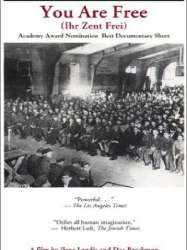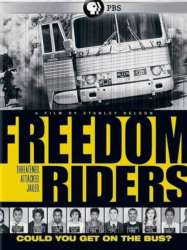Booker's Place: A Mississippi Story is a american film of genre Documentary directed by Raymond De Felitta released in USA on 27 april 2012
Booker's Place: A Mississippi Story (2012)

If you like this film, let us know!
Released in USA 27 april 2012
Length 1h31
Directed by Raymond De Felitta
OriginUSA
Genres Documentary
Themes Films about racism, Documentary films about racism, Documentary films about law, Documentaire sur une personnalité
Rating77%










Booker's Place: A Mississippi Story is a 2012 documentary film about Booker Wright, an African-American waiter who worked in a restaurant for whites only. In 1965, Wright appeared in Mississippi: A Self Portrait, a short NBC television documentary about racism in the American South. During his interview with producer Frank De Felitta, he spoke openly about racism, and his treatment as a waiter in an all-white restaurant. The broadcast of his remarks had catastrophic consequences for Wright.
Booker's Place: A Mississippi Story was directed by the son of Frank De Felitta, Oscar-nominated, independent filmmaker Raymond De Felitta, and co-produced by one of Booker Wright’s four grandchildren, Yvette Johnson. It includes interviews with those who lived in the community. They discuss life at the time, and the restaurant Wright owned, which catered to African-American customers.
The documentary premiered at the Tribeca Film Festival on April 25, 2012.
Comments
Leave comment :
Suggestions of similar film to Booker's Place: A Mississippi Story
There are 4 films with the same director, 8962 with the same cinematographic genres, 3221 films with the same themes (including 195 films with the same 4 themes than Booker's Place: A Mississippi Story), to have finally 70 suggestions of similar films.If you liked Booker's Place: A Mississippi Story, you will probably like those similar films :

Screamers (2006)
, 1h29Origin USA
Genres Documentary
Themes Films set in Africa, Films about racism, Documentary films about racism, Documentary films about law, Documentary films about war, Documentary films about historical events, Documentaire sur une personnalité, Documentary films about politics, Political films
Actors Shavo Odadjian
Rating58%






Mandela (1996)
, 1h58Genres Documentary, Historical
Themes Films set in Africa, Films about racism, Documentary films about racism, Documentary films about law, Documentaire sur une personnalité, Documentary films about politics, Political films
Rating69%





The documentary is the official film biography of Nelson Mandela, the first democratically elected president of the ethnically united South Africa. The film touches on Nelson Mandela's childhood, family, education, and his long struggle to gain freedom for all the various ethnic groups in South Africa, including his experiences on the Robben Island prison.

You Are Free (1983)
, 20minutesGenres Documentary
Themes Films about racism, Films about religion, Documentary films about racism, Documentary films about law, Documentary films about war, Documentary films about historical events, Documentaire sur une personnalité, Documentary films about religion, Political films, Films about Jews and Judaism, Documentary films about World War II
Rating67%






Soundtrack for a Revolution (2009)
, 1h22Directed by Bill Guttentag
Origin USA
Genres Documentary
Themes Films about music and musicians, Films about racism, Documentary films about racism, Documentary films about law, Documentary films about historical events, Documentary films about music and musicians, Documentaire sur une personnalité, Documentary films about politics, Musical films, Political films
Actors John Legend, Wyclef Jean, Joss Stone, Angie Stone, Harry Belafonte
Rating74%





L'histoire du mouvement pour les droits civiques aux États-Unis a toujours été rythmé par de la musique, des mélodies salvatrices, des chants pour la liberté. A travers les différents groupes musicaux de l'époque, "Soundtrack for a Revolution" retrace les combats des esclaves noirs de l'époque.

A Film Unfinished (2010)
, 1h29Origin Israel
Genres Documentary, Historical
Themes Films about films, Films about racism, Films about religion, Documentary films about business, Documentary films about the film industry, Documentary films about racism, Documentary films about law, Documentary films about war, Documentary films about historical events, Documentaire sur une personnalité, Documentary films about religion, Political films, Films about Jews and Judaism, Documentary films about World War II, Documentary films about films
Actors Alexander Beyer, Rüdiger Vogler
Rating73%





Ce sont des séries de bobines de films de 35 mm allemandes, anonymes, sans générique, portant la seule inscription : Das Ghetto, retrouvées dans les années 1950 qui sont à l'origine du film de Yahel Hersonski. Ces bobines constituent un « documentaire » allemand sur le ghetto de Varsovie durant la Seconde Guerre mondiale. Dans les années 1990, la découverte d'une bobine manquante viendra éclairer la propagande qui se cachait dans les premières images retrouvées et le véritable but des Allemands qui réalisèrent ces images.

Hiding and Seeking (2004)
Genres Documentary
Themes Films about racism, Films about religion, Documentary films about racism, Documentary films about law, Documentary films about war, Documentary films about historical events, Documentaire sur une personnalité, Documentary films about religion, Political films, Films about Jews and Judaism, Documentary films about World War II
Rating77%






The Final Journey (2010)
, 2h8Directed by R. J. Adams
Origin USA
Genres Documentary
Themes Films about racism, Films about religion, Documentary films about racism, Documentary films about law, Documentary films about war, Documentary films about historical events, Documentaire sur une personnalité, Documentary films about religion, Political films, Films about Jews and Judaism, Documentary films about World War II
Actors Rob Adams, Kelly Crean
The two-hour-long film utilizes a then and now format that blends first-generation archival film with current HD footage of each of the former Nazi camps as they are today and the how and who they appeared during the Third Reich.

Blue Eyed (1996)
, 1h30Genres Documentary
Themes Films about racism, Documentary films about racism, Documentary films about law, Documentaire sur une personnalité
Rating81%





 , 1h14
, 1h14Directed by Liz Garbus
Origin USA
Genres Documentary
Themes Politique, Films about racism, Documentary films about racism, Documentary films about law, Documentary films about historical events, Documentaire sur une personnalité, Documentary films about politics, Political films
Rating73%






Freedom Riders (2010)
, 2hDirected by Stanley Nelson Jr.
Origin USA
Genres Documentary, Historical
Themes Films about racism, Documentary films about racism, Documentary films about law, Documentary films about historical events, Documentaire sur une personnalité, Documentary films about politics, Political films
Rating79%





En archives et témoignages exceptionnels, une immersion au jour le jour dans une spectaculaire bataille du Mouvement des droits civiques aux États-Unis, au printemps 1961 : les "voyages de la liberté" pour déségréguer dans le Sud les grandes lignes de bus.
 Connection
Connection